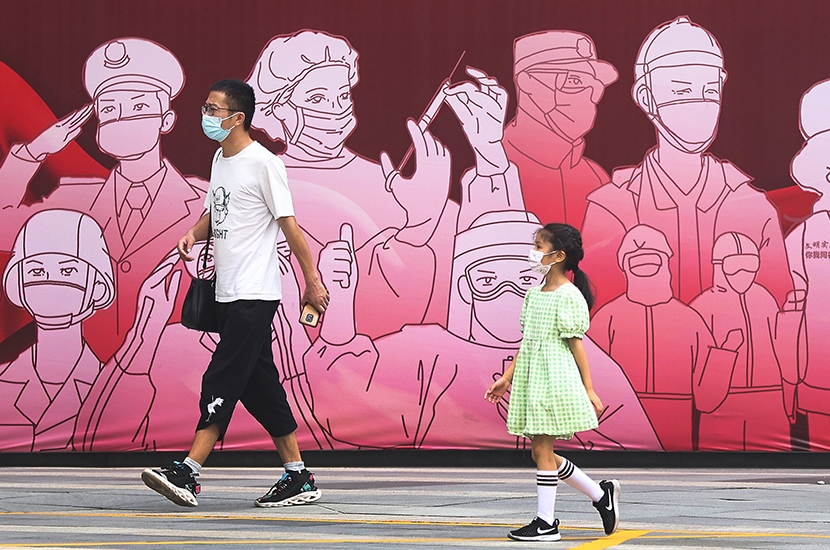In January my 80-year-old grandmother had a large birthday party in her home city of Nanjing. For the British branch of her family, stuck in lockdown, it was surreal to see photos and videos of what can only be described as a banquet. A hundred people hugging, drinking, laughing — it was as if Covid didn’t exist. Normal life seemed to have returned to China, while in England even outdoor dining was a fantasy.
Seven months on, the British are the ones ditching masks, hugging friends and heading to the beach while the Chinese face what state media has called the most serious domestic recurrence of the virus since the start of the pandemic. The fresh outbreak started in Nanjing, which the rest of China now views with the same mix of sympathy and disdain it once did Wuhan. Masks, health codes and mass testing are back. No more parties. My grandmother stays at home every day, WeChatting her siblings in the nearby city of Yangzhou, also badly hit.
Thirteen provinces across the country have recorded new cases of Covid. An annual international film festival in Beijing is one of many mass events that have been cancelled. Air China bookings are down 25 per cent in a month. In Zhengzhou, which was hit recently by flash floods and now by Covid, contract workers who have lost their gigs have been seen sleeping on the streets.

The national case numbers are very low by British standards: just under 2,000 active cases across the whole country, compared with our 30,000 a day. Like Australia and New Zealand, China is pursuing a ‘zero Covid’ strategy. Its border policy is ludicrously strict, requiring up to four weeks of hotel quarantine. It’s no wonder then that international flight arrivals are still 95 per cent lower than before the pandemic.








Comments
Join the debate for just £1 a month
Be part of the conversation with other Spectator readers by getting your first three months for £3.
UNLOCK ACCESS Just £1 a monthAlready a subscriber? Log in